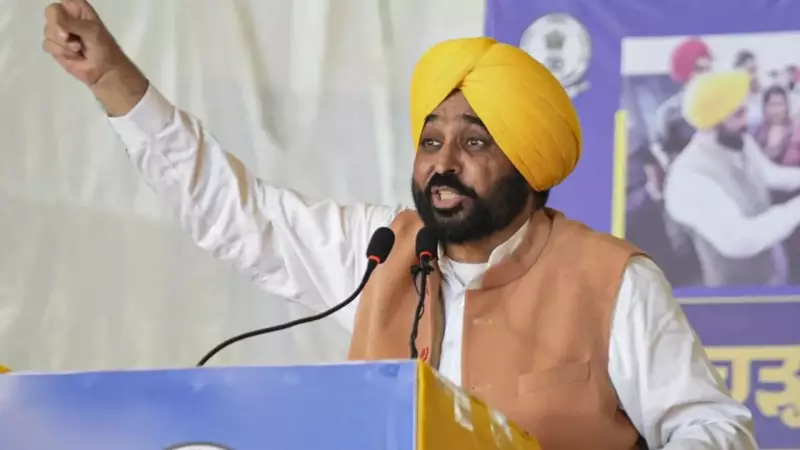
In a fiery response to the ongoing air quality crisis, Punjab Chief Minister Bhagwant Mann has launched a scathing attack against the Bharatiya Janata Party (BJP), accusing them of deliberately scapegoating Punjab and its farming community for Delhi's severe pollution problems.
The political confrontation escalated as Mann vehemently denied allegations that stubble burning by Punjab farmers is the primary cause of Delhi's toxic air. "This is a calculated political strategy to defame our hardworking farmers," Mann declared during a press conference, highlighting what he called a systematic campaign to shift blame away from urban pollution sources.
The Political Storm Over Pollution
The controversy emerges as Delhi continues to grapple with hazardous air quality levels, with the Air Quality Index (AQI) frequently crossing into the 'severe' category during winter months. While environmental authorities point to multiple contributing factors, the political discourse has increasingly focused on agricultural burning in neighboring states.
Mann countered these claims by presenting data showing that urban pollution sources within Delhi and surrounding industrial areas contribute significantly to the air quality crisis. "Why single out Punjab farmers when vehicles, industries, and construction activities in the NCR region are major polluters?" he questioned.
Defending Punjab's Agricultural Community
The Punjab CM emphasized the economic pressures facing farmers, who often resort to stubble burning due to the high costs of alternative disposal methods. "Instead of providing viable solutions and financial support, the BJP government is using our farmers as political pawns," Mann stated.
He outlined several initiatives undertaken by the Punjab government to address the stubble management issue, including:
- Subsidized machinery for crop residue management
- Awareness campaigns about alternative uses for agricultural waste
- Financial incentives for adopting eco-friendly practices
- Collaboration with research institutions for sustainable solutions
The Broader Environmental Debate
Environmental experts have long argued that addressing Delhi's air pollution requires a comprehensive approach rather than blaming individual states or sectors. The complex interplay of meteorological conditions, geographical factors, and multiple pollution sources makes simplistic attributions misleading.
"Air pollution knows no political boundaries," Mann emphasized, calling for cooperative federalism in tackling environmental challenges. He urged the central government to focus on implementing the National Clean Air Programme effectively rather than engaging in what he termed "pollution politics."
The escalating war of words signals that air pollution has become not just an environmental and public health issue, but a significant political battleground in North Indian politics, with farmers' interests and state pride at the center of the controversy.






